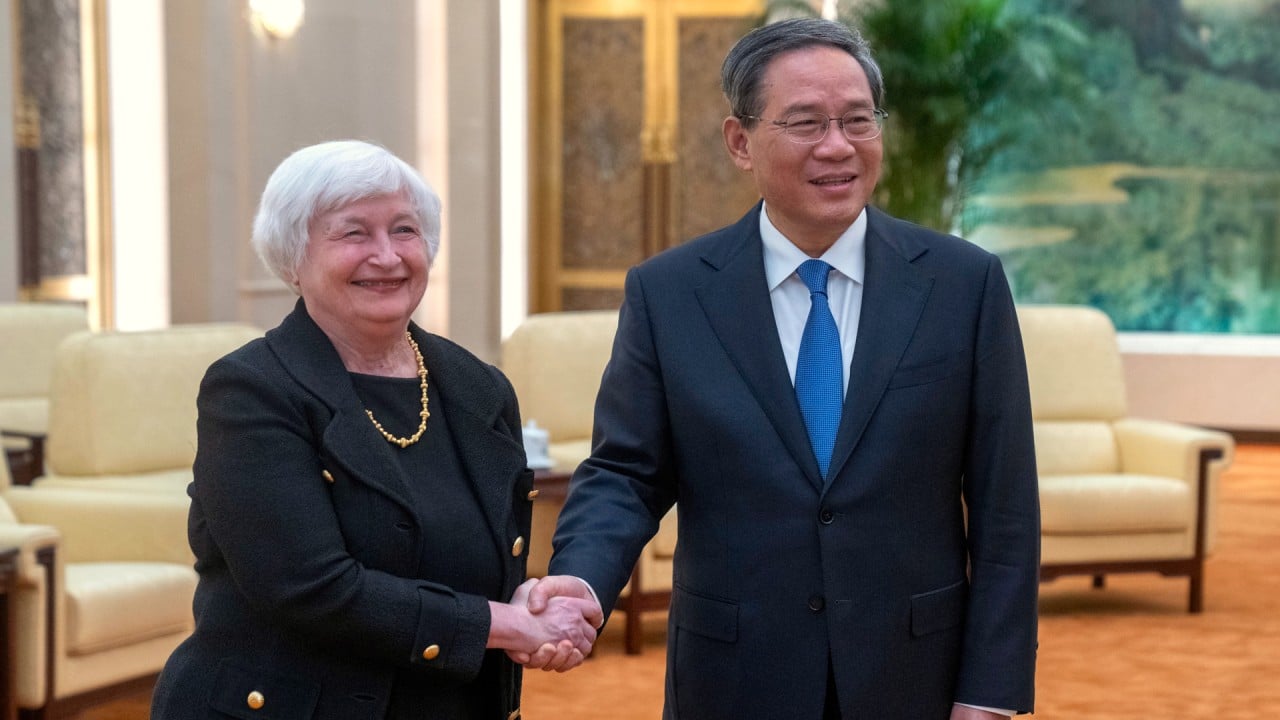
Explainer | From AI to self-sufficiency: 5 things to know about a possible new US ban on investment in China
- US Treasury Secretary Janet Yellen became the second senior figure to visit China in recent weeks after US Secretary of State Antony Blinken following her visit this month
- The visits were seen as moves to ease bilateral relations, but the US is still believed to be planning new restrictions on US investments in China
US Treasury Secretary Janet Yellen’s four-day visit to China this month raised hopes for respite after years of turbulent relations between the world’s top two economies.
But Yellen and US National Security Adviser Jake Sullivan have hinted since April that Washington will stop American investments in China, particularly in hi-tech areas, to keep secrets from reaching military end users.
And investors are braced for a “new, highly controversial tool in the works that would restrict certain US investments in China in specific sensitive technologies with significant national security implications”, the Peterson Institute for International Economics said in May.
But what do you need to know about the new restrictions?
1. Cloud computing, AI targeted
Yellen said in April that Washington would consider a programme to restrict outbound investments in sensitive technologies linked to national security.
I can see curtailment of exports relating to artificial intelligence and cloud computing, two areas that are highly sensitive and relate to national security
And both cloud computing and artificial intelligence (AI) have a national security dimension, said Andrew Collier, a China economist at Global Source Partners in Hong Kong.
“I can see curtailment of exports relating to artificial intelligence and cloud computing, two areas that are highly sensitive and relate to national security,” he said.
2. Bans would not be the first
US laws already bar transfers of advanced technology to China, especially in semiconductors, and hold foreign firms to the same rules if they have business in the United States.
A US Department of Commerce entity list also blocks around 600 Chinese companies from conducting deals in the US to protect “sensitive” domestic technologies from any Chinese military use.
3. US businesses face relatively mild restrictions
Yellen said she told Chinese officials during her visit that any investment curbs would be “highly targeted” across a few fields to avoid “unnecessary repercussions”.
Washington basically hopes to keep allowing sales of technology for civilian use, while cutting off military transfers, said Douglas Barry, a Washington-based consultant who follows US-China trade trends.
4. Tariffs still having an impact
A wide-reaching dispute that US ex-president Donald Trump hatched in 2018 – over what he considered unfair trade practices by Beijing – has led to tariffs from both sides covering a total US$550 billion worth of goods.
In the US, exporters of passenger aircraft, oil, coal, soybeans, pork and high-end computer chips are feeling the strongest pinch, Barry added.
Much heavy lifting remains before the contours of a new normal become visible
“Much heavy lifting remains before the contours of a new normal become visible,” he said.
“Consequently, many companies have slowed or stopped new investment.”
5. China is pursuing self-sufficiency
Chinese officials resent US curbs on trade and investment and, earlier this year, a Ministry of Commerce spokeswoman criticised the possible curbs by Washington as using “administrative means [that] undermine market rules and international trade order”.
But China is trying to become more technologically self-sufficient.
President Xi Jinping said 10 years ago that China had little choice but to take its own course in new technologies, and last year, the government gave 190 chip firms a combined US$1.75 billion in subsidies as a way of making the industry more self-reliant.


